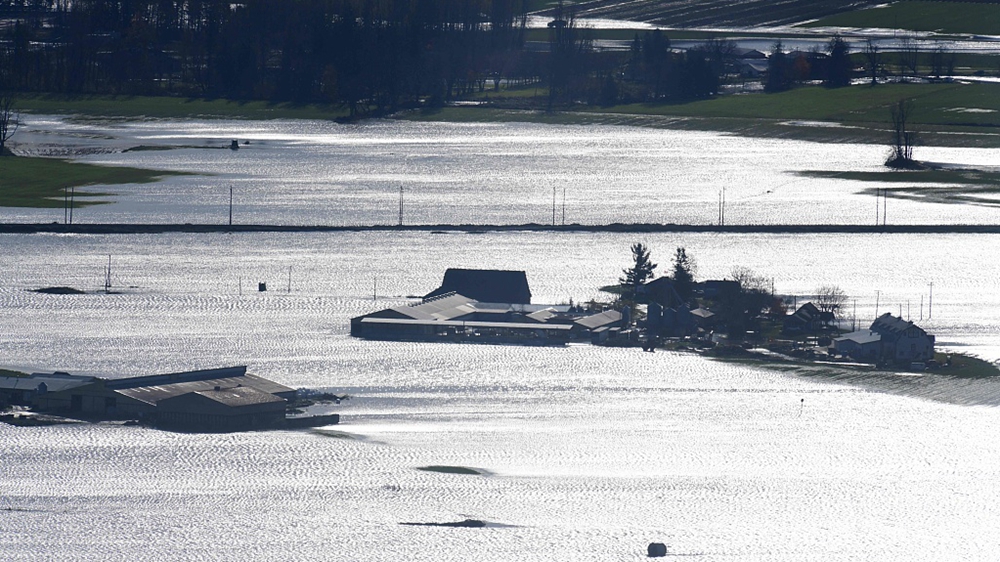A state of emergency has been declared in the Canadian western province of British Columbia after a major storm cut road and rail links in the region.
The extreme weather in Canada comes barely four days after world leaders met for the COP26 climate conference in Glasgow. The same region, British Columbia, suffered a record high heat wave in the summer that killed more than 500 people as well as wildfires, including one that destroyed the village of Lytton.
According to reports, the Canadian Armed Forces are being deployed to help thousands of stranded residents who have been trapped since the storm hit overnight on Sunday, November 14. Canadian Prime Minister, Justin Trudeau pledged, during a visit to Washington DC to assist and also said troops would help rebuild. While one woman was killed in a landslide, two people are remain missing and thousands remain evacuated after an "atmospheric river" – a long strip of moisture in the air that transports water from tropical areas towards the poles – dumped the region's monthly rainfall average in 24 hours.
Officials in the region have since attributed the natural disaster to the effects of climate change. The impact of climate change on the frequency of storms is still unclear, but increased sea surface temperatures warm the air above and make more energy available to drive hurricanes, cyclones, and typhoons. As a result, they are likely to be more intense with more extreme rainfall.
The world has already warmed by about 1.2C since the industrial era began and temperatures will keep rising unless governments across the world make steep cuts to emissions. British Columbia Premier John Horgan said the emergency order took effect at 12:00 local time (20:00GMT) in a news conference on Wednesday.
He said that travel restrictions will keep people off flooded roads and ensure that essential goods will "reach the communities that need them". "There's not a person that hasn't been affected or will not be affected by the events of this past weekend," he said, adding: "These events are increasing in frequency due to human caused climate change." Mr Horgan said British Columbia must "bring the seven billion other souls that live on this planet to understand that we need to act now… to protect us from these types of events that will happen in the future". University of British Columbia atmospheric scientist Rachel White said that the massive devastation caused by this storm can likely be attributed to a combination of human-caused factors. "As we warm up the climate, heavy rainfall events such as these are going to get more intense," she said. Speaking further, she said "as we warm up the atmosphere, as we warm up the oceans – more water is evaporated from the oceans. So then when we have these atmospheric river events, essentially the atmosphere can carry more water towards our mountains." This then condenses into rain. She maintained that logging and wildfires have also removed old-growth trees with deep roots, leading to a higher risk of landslides when it rains and that human development in flood plains, and the increase of non- absorbent asphalt also increases risks of flooding.
